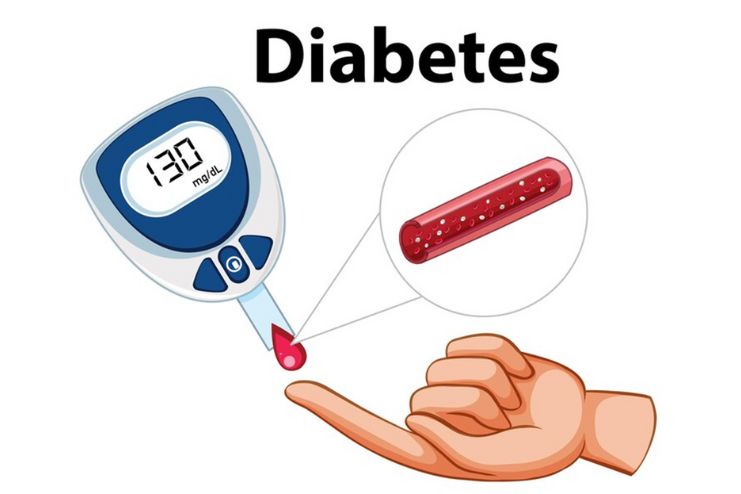Affiliate Disclaimer
Some links in this article are affiliate links. We may earn a small commission if you make a purchase through these links, at no extra cost to you. We only recommend products we find useful to our readersIt is undoubtedly true that stress is a part of everyone’s life; however, it persists to be a great struggle for diabetics. Any type of stress causes the body to activate its fight-or-flight mode, thereby releasing hormones. This causes an uprising and downfall in the blood glucose level. So, this relationship between stress and diabetes management is, hence, very significant because until and unless stress is managed, it aggravates the symptoms and makes general health conditions complicated. Knowing the types of stress and their effects on glucose levels along with effective coping strategies can help you live with diabetes keeping it under control. In this article, we shall explore the effects of stress on diabetes, and various forms of stress that influence blood glucose levels, and evaluate techniques of managing stress and its consequences.
Types of Stress
Stress can be categorized into two broad types: mental stress and physical stress. It is also important to understand these types since their impacts may vary from person to person.
- Mental Stress: Mostly stress is emotional or psychological. Common causes include work-related stress, financial stress, marital distress, or changes in life. Mental stress causes fight-or-flight syndrome.
- Physical Stress: These stressors are related to the body, including disease, injury, surgery, or extreme environmental conditions. Such stressors can cause inflammation and trigger an immune response, which may then lead to high blood sugar in individuals with diabetes.
Glucose Levels

When the body experiences stress, it responds by releasing hormones like adrenaline and cortisol. These hormones prepare the body for a quick response to perceived threats, but they can also lead to a temporary spike in blood glucose levels.
- Adrenaline: Adrenaline can cause the liver to release stored glucose into the bloodstream, providing immediate energy for “fight or flight” situations. However, for individuals with diabetes, this can result in dangerously high blood sugar levels if the body cannot utilize this glucose effectively.
- Cortisol: Known as the stress hormone, cortisol helps regulate metabolism, blood sugar levels, and the body’s inflammatory response. Prolonged exposure to elevated cortisol levels can lead to insulin resistance, making it even harder for individuals with diabetes to manage their blood sugar effectively.
Symptoms
The symptoms of stress may surface physically and emotionally, and their nature varies from one person to another. Understanding the symptoms allows easy detection and monitoring.
- Physical Symptoms:
- Headache
- Muscle tension
- Sleeping disorders
- Fatigue
- Emotional Symptoms:
- Irritability
- Anxiety
- Depression
- Restlessness
- Behavioral Changes:
- Withdrawal
- Eating habits
- Substance use
Prevention

Stable blood glucose levels and general health depend on efficient stress management. The following are some helpful strategies:
- Physical Activity: One of the best strategies to deal with stress is to be physically active. Endorphins are naturally occurring mood enhancers that are released during exercise. Every week, try to get in at least 150 minutes of moderate-intensity activity, such as swimming, cycling, or walking.
- Relaxation Techniques: Deep breathing techniques, yoga, tai chi, and other practices can help people relax and reduce stress. These exercises promote mindfulness and raise awareness of the breath and body.
- Mindfulness Practices: Meditation and guided imagery are two mindfulness practices that might help you manage stress better. Frequent practice can help you control your emotions better and feel less anxious.
- Avoiding Known Stressors: Recognize and limit your exposure to stressful events. You might need to avoid specific social situations that make you anxious or set boundaries at work.
- Social Support: Socializing with loved ones, friends, and family can reduce feelings of isolation and offer emotional support. Social interaction can also be beneficial.
Coping
If you’re feeling overwhelmed by stress, especially related to diabetes, here are ways to cope with diabetes-related stress:
- Online Support Groups: Join online communities, such as Diabetic Connect for valuable resources and a supportive network. These platforms often feature articles, recipes, and forums where individuals share experiences and strategies.
- In-Person Support Groups: Organizations like Diabetes Sisters offer opportunities for women with diabetes to connect at local meetups. Additionally, the Defeat Diabetes Foundation provides listings for support groups across the country, and the American Diabetes Association focuses on education and outreach.
- Therapy: Speak with a licensed therapist or counselor for tailored coping strategies and a safe space to discuss personal challenges. Therapy can help you develop healthy coping mechanisms and may offer insights that online or in-person support groups cannot.
What You Can Do Now

Diabetes is difficult, but it can be effectively managed. Think about making minor, doable adjustments to your daily routine, like:
- Including meditation sessions to help you relax
- Practicing short exercises or physical activities you enjoy
- Looking for support groups that fit your lifestyle and personality
Conclusion
Managing stress effectively is one of the best things you can do to keep your blood glucose under control and to ensure good overall health. Knowing which stressors raise blood glucose and recognizing stress behaviors will help you minimize their impact. Practicing some kind of stress-reduction practice and connecting with others through online and in-person communities helps find healthy coping mechanisms. In the long term, promoting resilience against stress not only will help you cope with diabetes but also lead to a balanced life.
In this Article





















